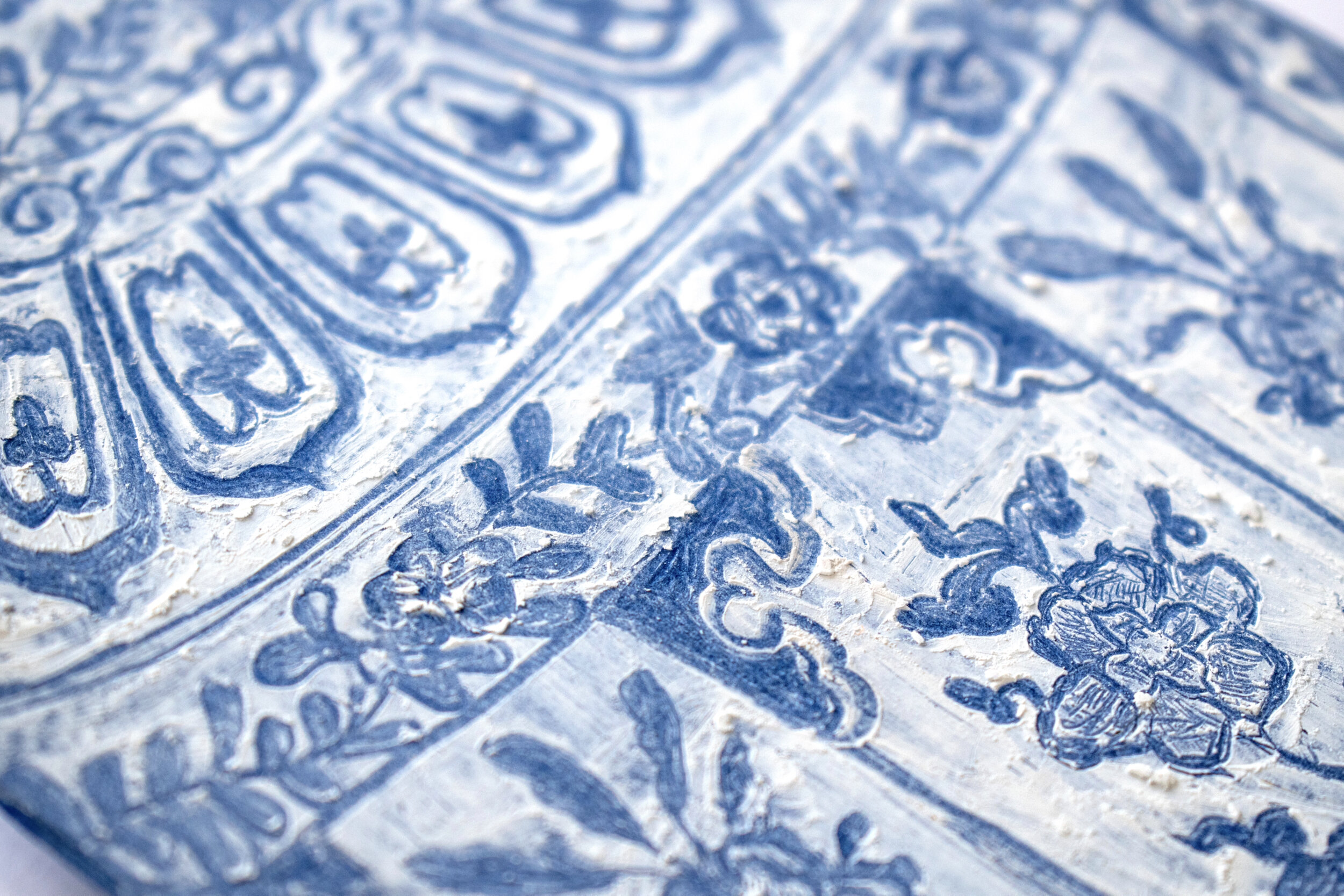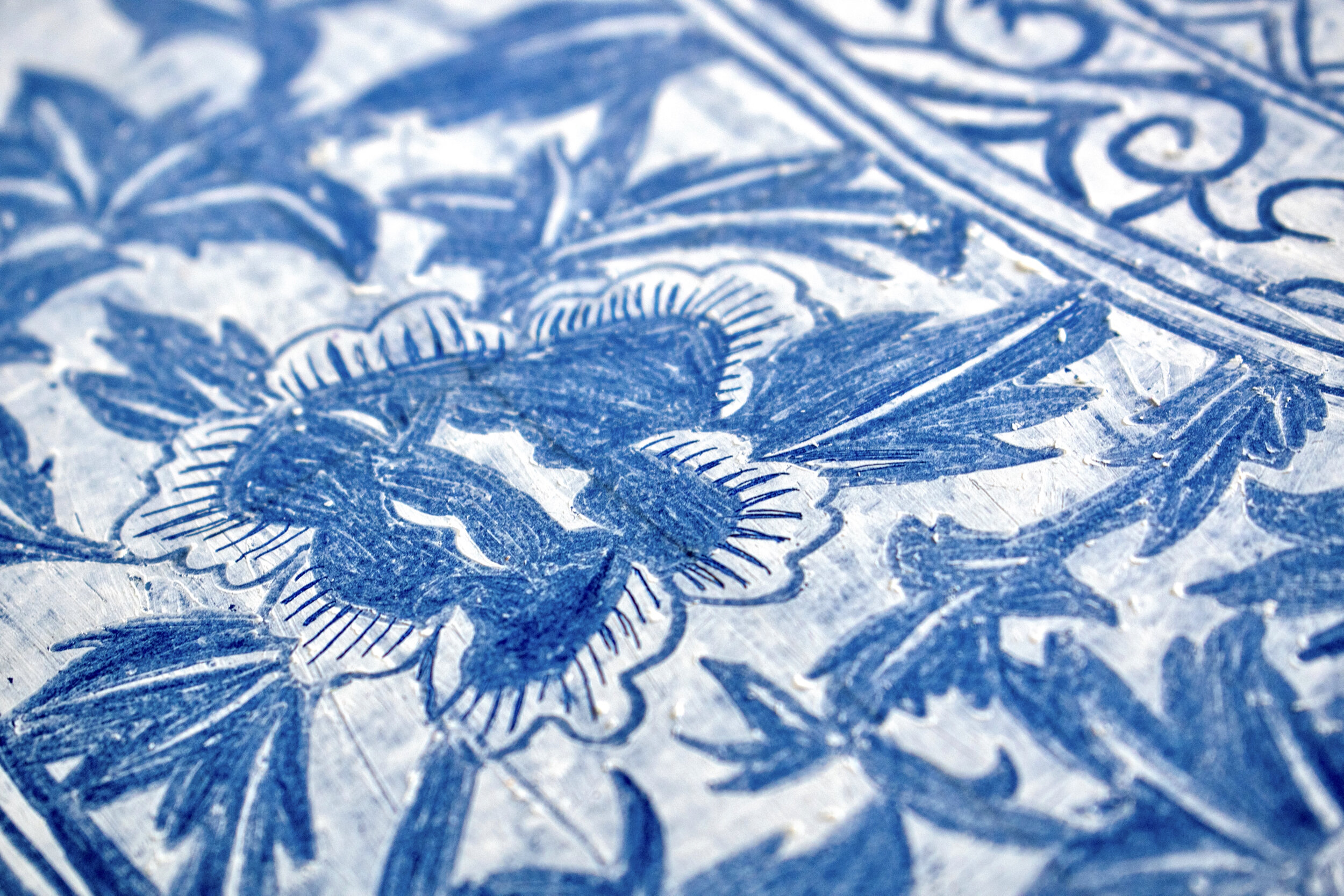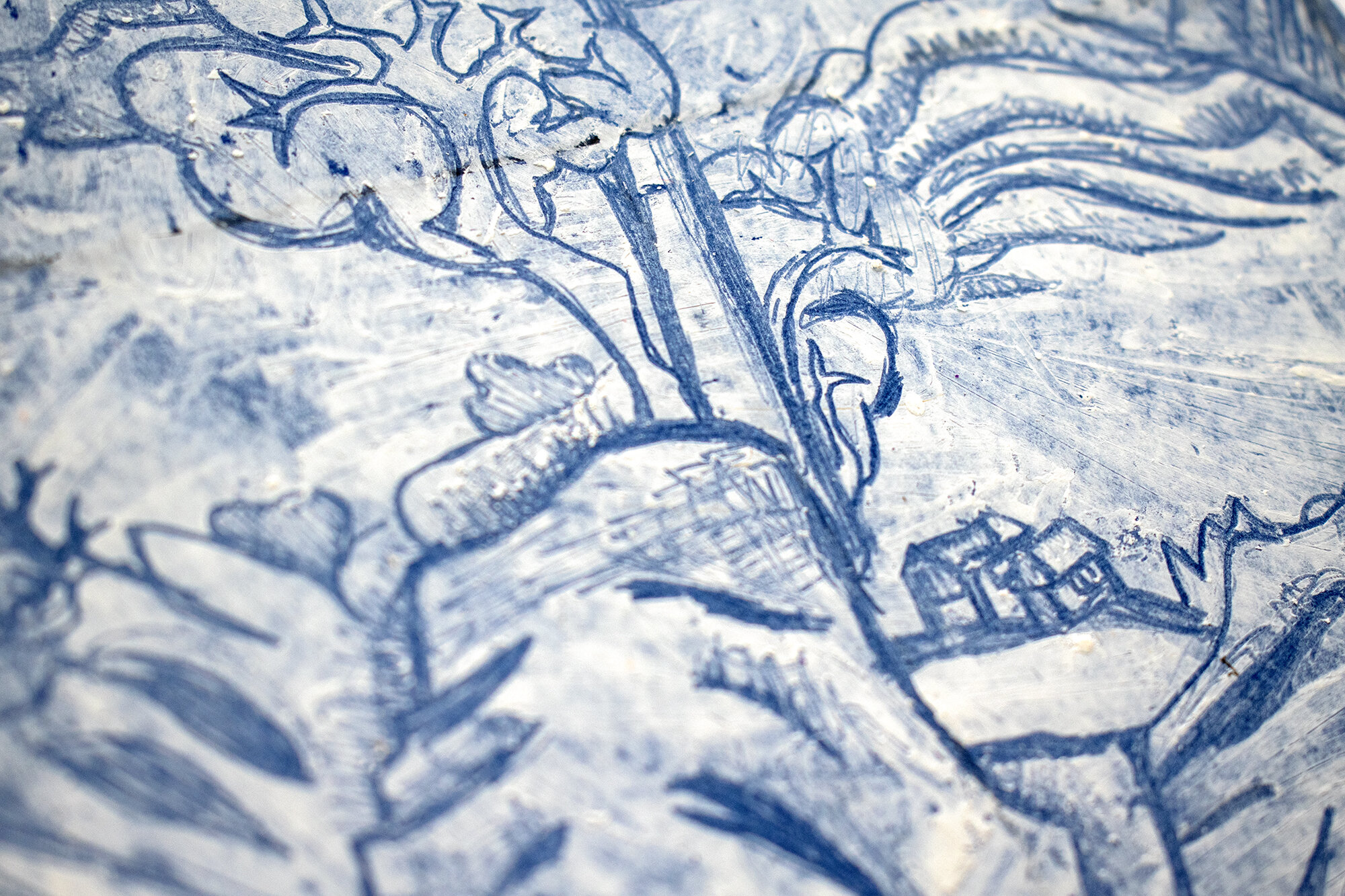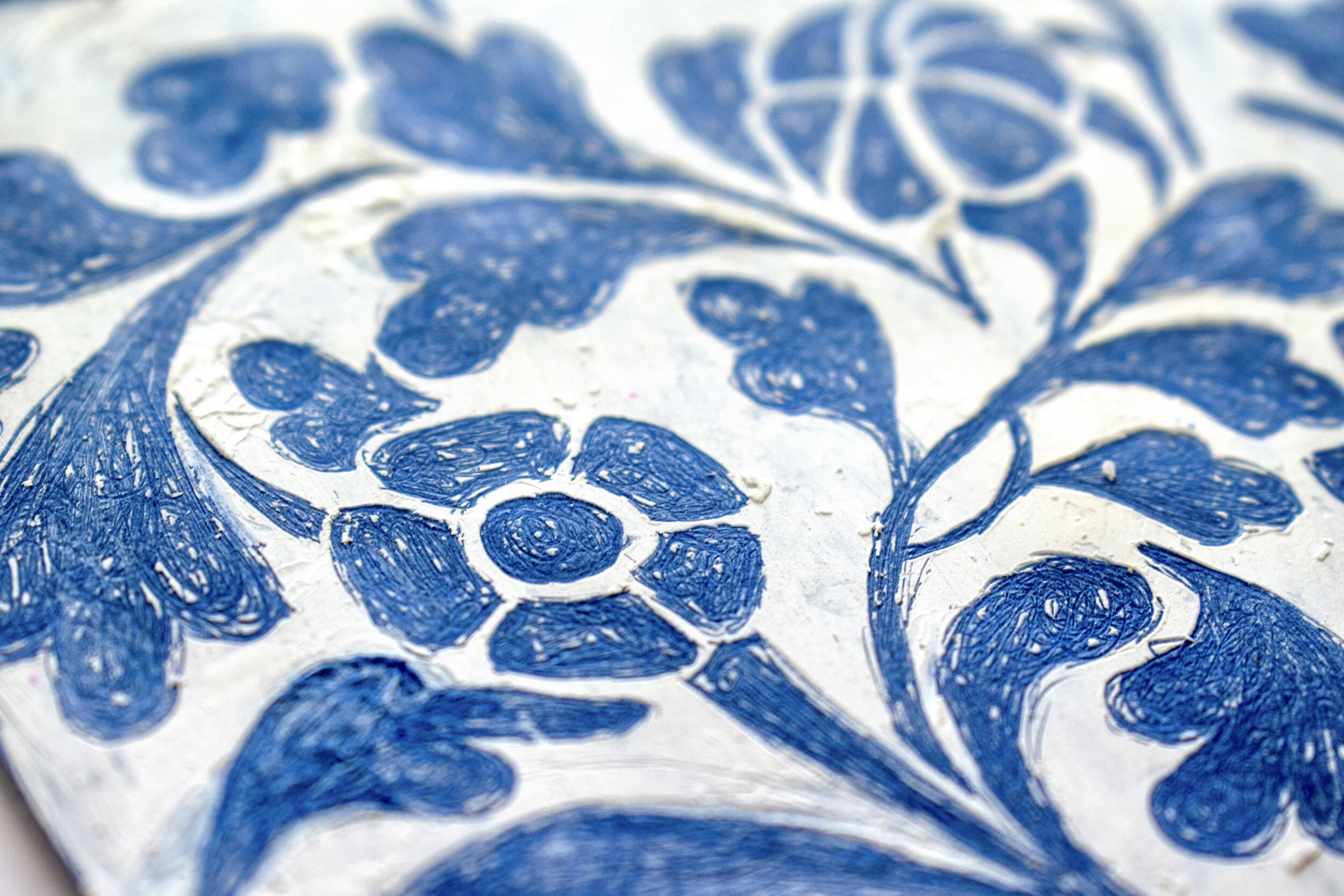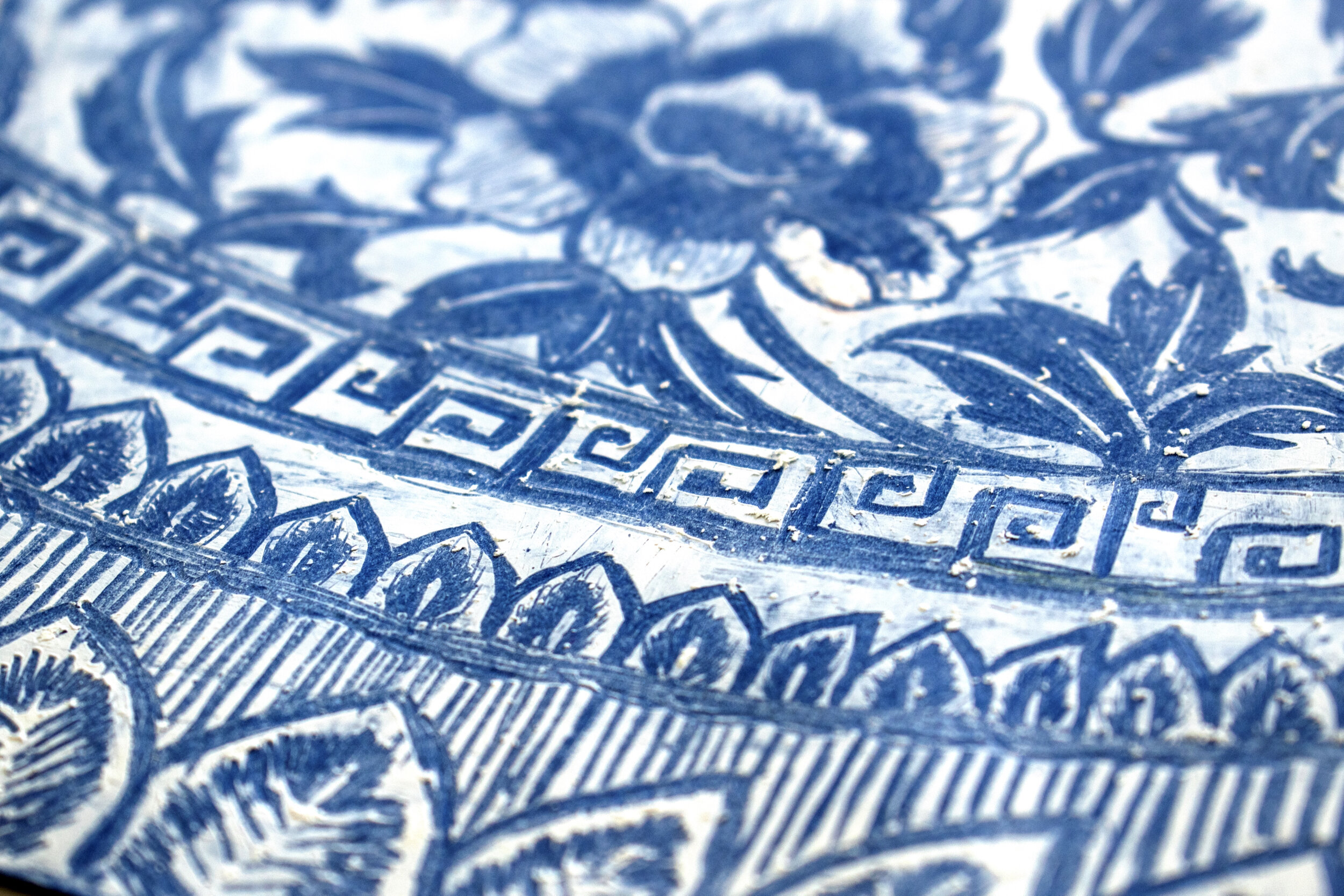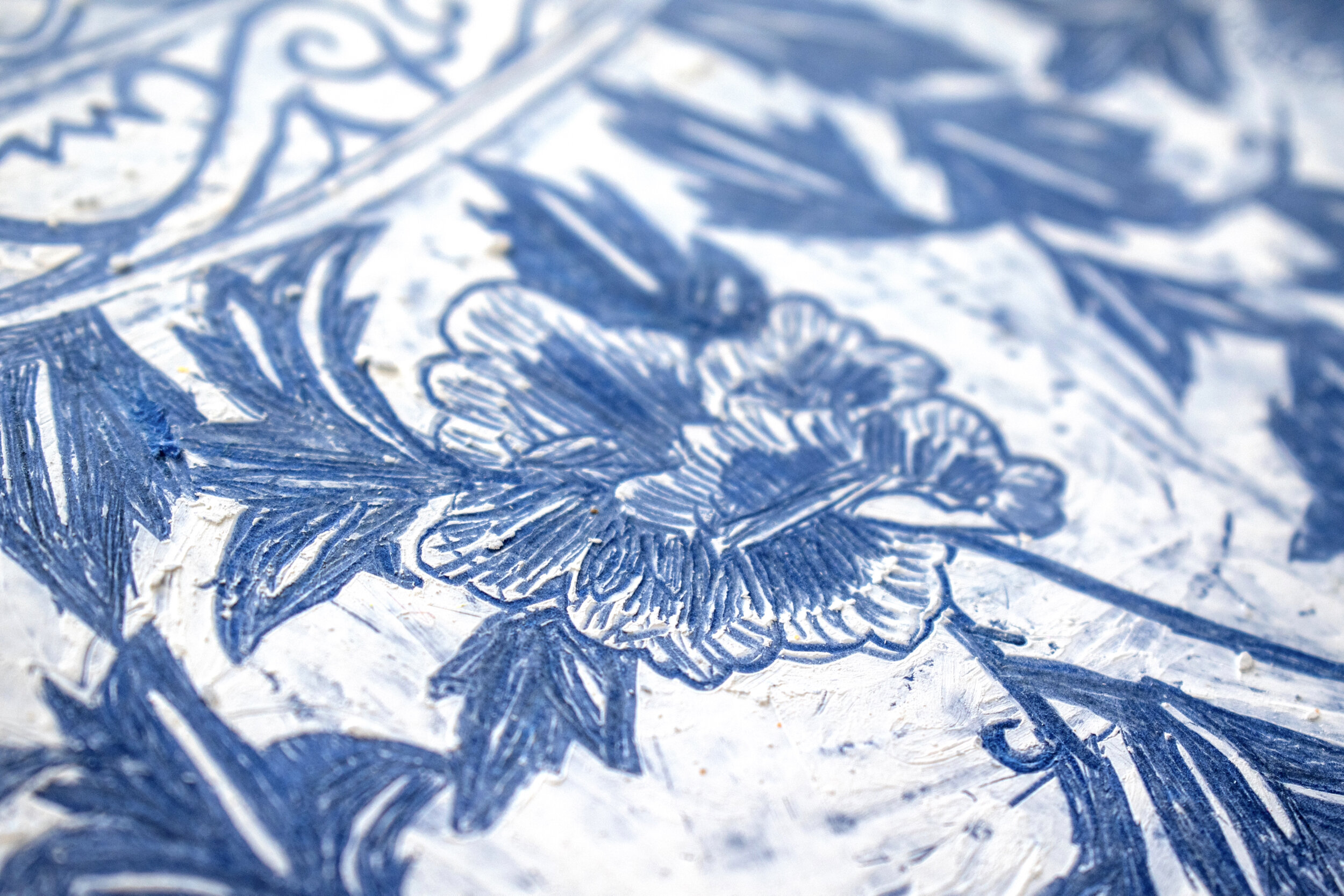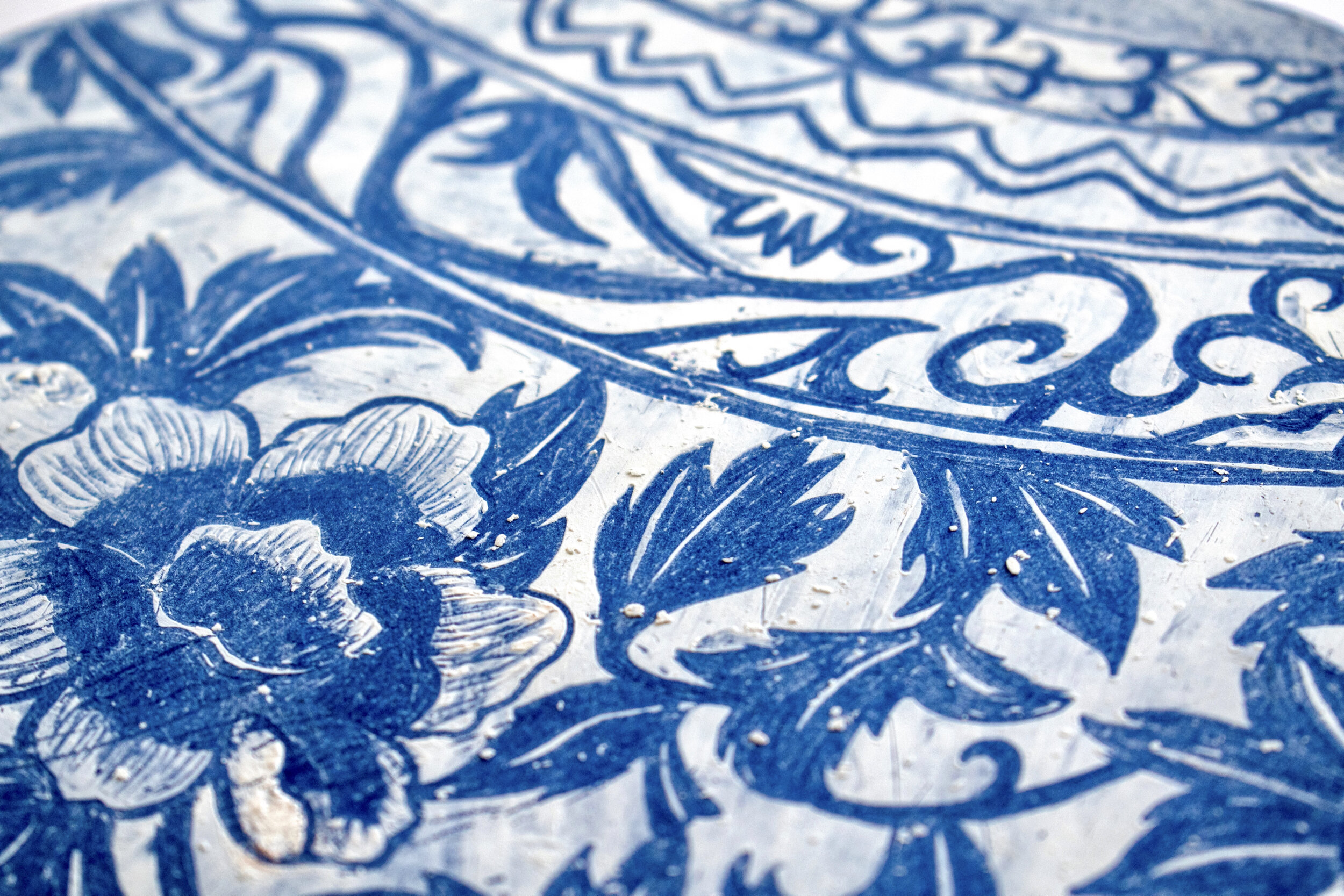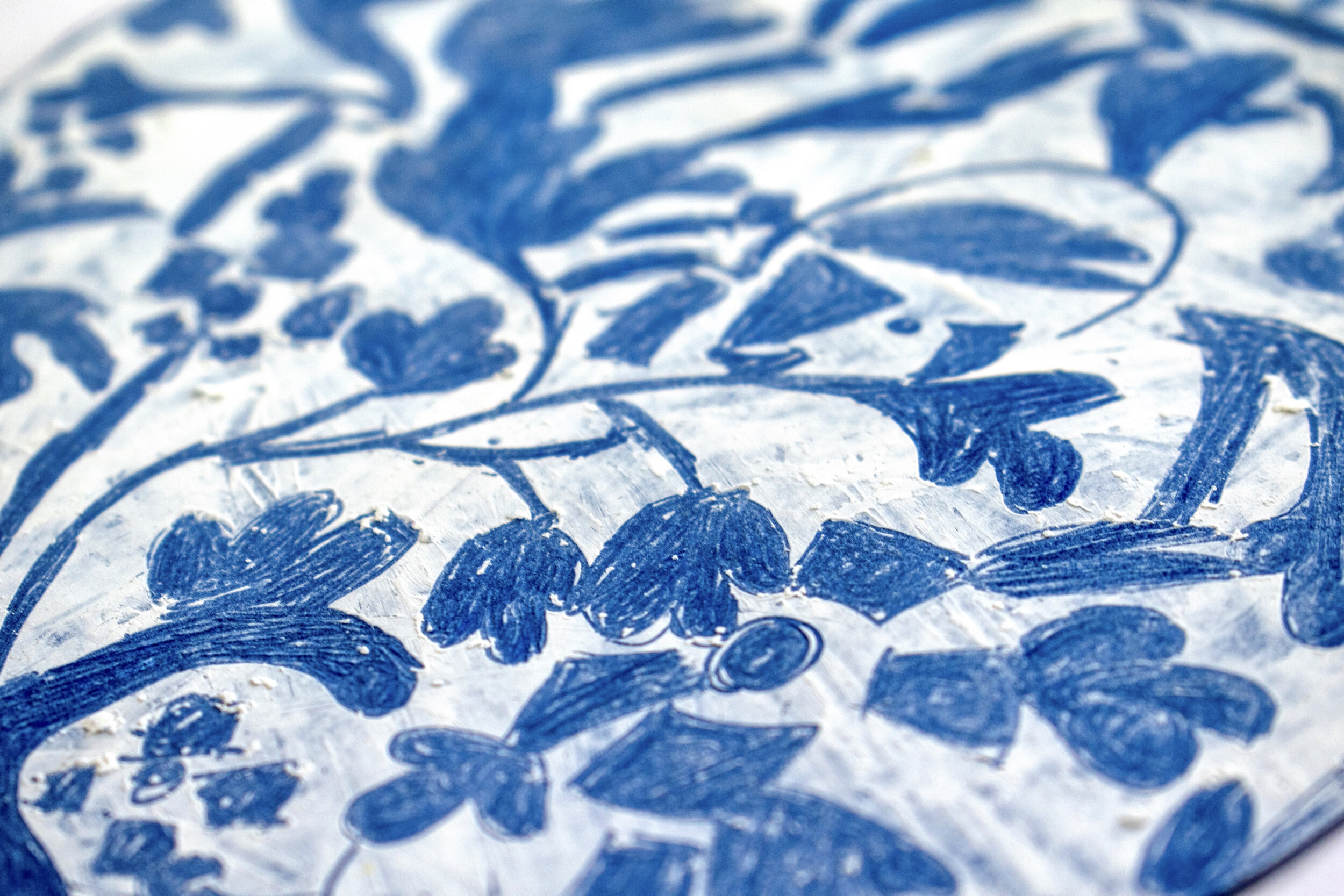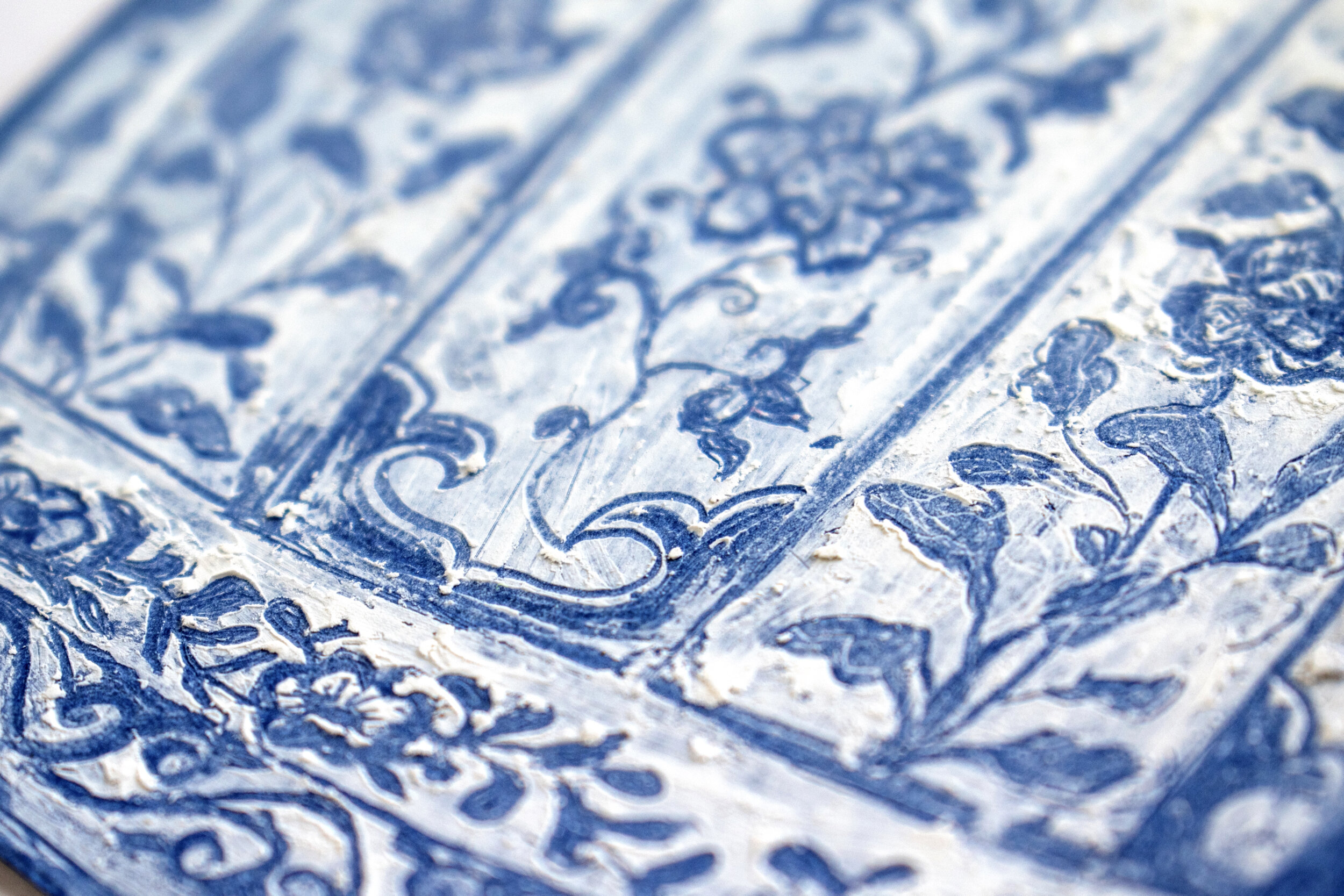Community
A shared sense of belonging occurs when people are able to negotiate and appreciate their complex and often messy differences.
1 November 2019
For our unit on Community, Grade 8s learned about the illustrious history of the world’s first mass produced global luxury items— Chinese porcelain. They learned how these vessels once made exclusively for the Chinese imperial family were eventually produced for export to wealthy clients in the Middle East, and through trade along the Silk Road, attracted the attention of European merchants. Using the subtractive technique of sgraffito, they transcribed the designs of various Ming vases, then developed original Ming-style designs for a ceramic vase based on the communities to which they belong.

This project’s focus on community is derived from important historical ties between Imperial China, its artisans in Jingdezhen, and the 17th century global marketplace. What was at once reserved for the Chinese emperor came to be a luxury item produced in large industrial kilns for clients half a world away, decorated to customer specifications and designed to reflect the motifs and cultures of distant places. In studying Ming porcelain, my students learned what raw materials are used in the production of porcelain, what some common motifs symbolise, and which vases are considered the most valuable on the antiques market today.
Through sgraffito transcriptions, my kids were able to try a different approach to drawing, starting with their milky white “background” and then scratching into the surface, revealing the cobalt blue underneath, to create the design. They all really dived in to the task, creating beautiful high contrast sgraffito studies with crisp and delicate lines and an overall sense of rhythm and balance. Their sgraffito studies prepared them to create an original Ming-style vase in clay that illustrates the various communities they belong to, including: homeroom, grade, school, family, city and country. Photos of their ceramic vases to come!





